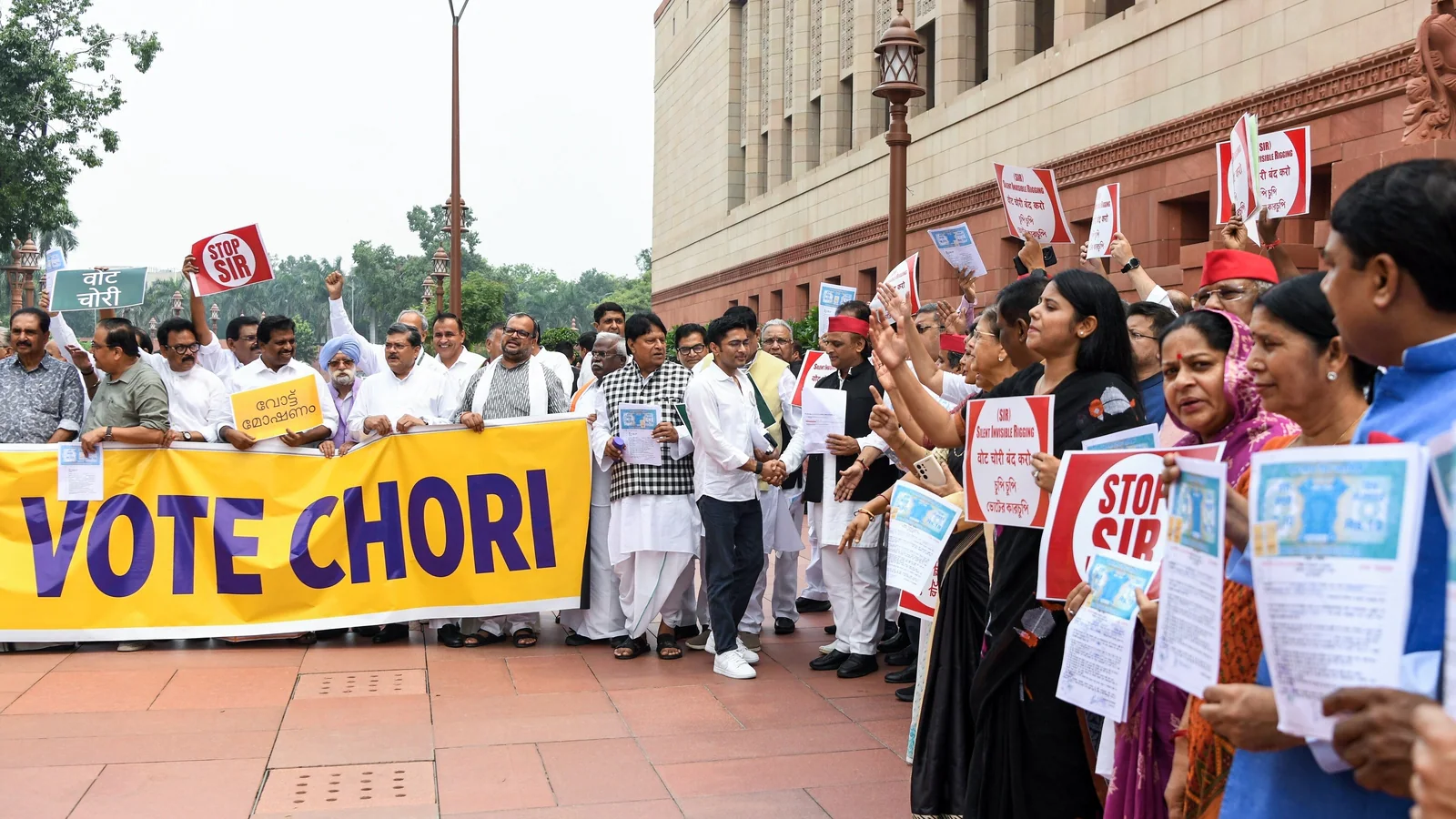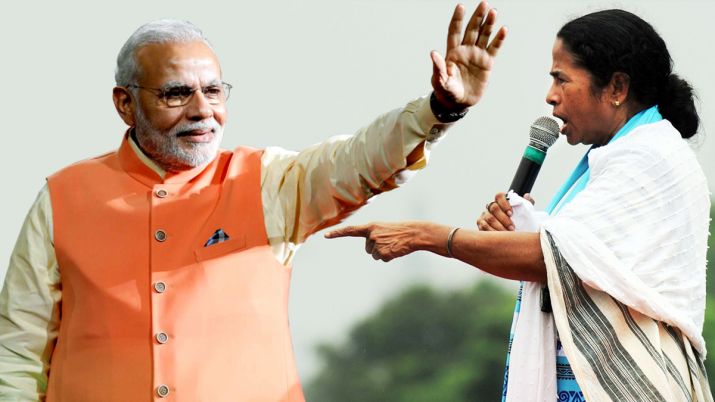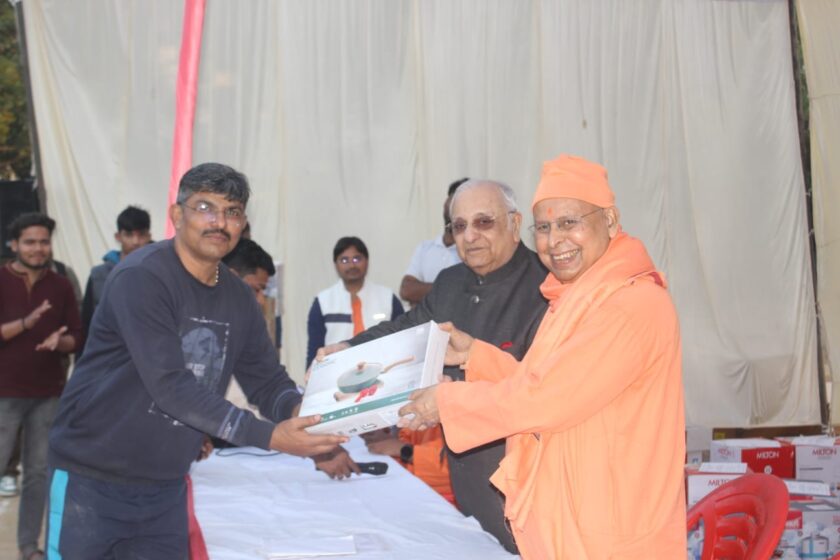NEW DELHI | A new controversy has erupted in Indian politics, with opposition leaders, particularly Congress’s Rahul Gandhi and Rashtriya Janata Dal’s (RJD) Tejashwi Yadav, making serious allegations against the Election Commission of India (ECI). Rahul Gandhi held a press conference, accusing the ECI of “vote theft” and electoral list fraud. He claimed the ECI’s true face has been revealed to the public.
These accusations arose from a rally in Sasaram, Bihar, where opposition leaders alleged a nexus between the Bharatiya Janata Party (BJP) and the ECI. Immediately following the rally, the ECI held a press conference in Delhi to respond to the claims. The entire issue has now become a major political and constitutional debate.
The Special Intensive Revision (SIR) Controversy
At the Sasaram rally, Rahul Gandhi alleged that the Special Intensive Revision (SIR) process in Bihar was being used to add new voters and delete old ones to benefit the BJP. RJD leader Tejashwi Yadav also questioned the timing of this rushed process, especially as the people of Bihar were grappling with floods.
The ECI flatly rejected these allegations. Chief Election Commissioner Gyanesh Kumar clarified that updating the voter list before an election is a legal requirement under the Representation of the People Act. He cited the 2003 SIR in Bihar as an example of a successful past revision to demonstrate that this is not a new or secretive process.
Duplicate EPICs and “One Person, Many Votes”
Another major accusation concerns duplicate Electors Photo Identity Cards (EPICs). Rahul Gandhi provided examples of individuals whose names were on multiple voter lists. The ECI clarified that this often occurs when a person changes residence but fails to remove their name from the old list. The ECI cannot remove a name on a mere request, as many people can share the same name. The process requires either the individual to have their name removed or for it to be corrected during the SIR.
The Reality of “Zero House Numbers”
Opposition parties claimed that millions of fake voters with invalid addresses were on voter lists in states like Maharashtra, Karnataka, and Madhya Pradesh. Rahul Gandhi specifically raised questions about “zero house number” addresses, where multiple voters were registered in a single room.

The ECI called these accusations baseless and irresponsible, stating that terms like “vote theft” are a direct attack on the integrity of millions of voters and election staff. On the “zero house number” issue, the ECI gave a nuanced response, explaining that many people do not have a permanent home. Their address is simply where they sleep at night, such as under a bridge or on a roadside. To call these people “fake voters” is to disrespect their dignity. The ECI also pointed out that in many unauthorized colonies or rural areas, homes are not assigned numbers. In such cases, a notional number is entered on the voter form, which appears as “zero” in the computer system. The most important criteria for being a voter are citizenship and being at least 18 years old, not a home address.
The Affidavit Controversy
Rahul Gandhi repeatedly questioned why the ECI demanded an affidavit from him but not from BJP leaders. The ECI responded that this is a part of the law. The Chief Election Commissioner explained that if a person who is not a voter in a specific constituency complains about irregularities in its voter list, they are legally required to provide an affidavit. This rule applies to everyone. He added that if the affidavit is not provided within seven days, it implies the allegations are baseless, and the accuser should apologize to the nation.
Questions About the Press Conference’s Timing
The timing of the ECI’s press conference was also questioned, as it was held simultaneously with the opposition’s rally in Bihar. Senior journalist Paranjoy Guha Thakurta noted that the ECI had not previously held such immediate press conferences, adding that the Supreme Court had recently directed the ECI to release a list of 6.5 million voters who had been removed from the draft lists.
Political analyst Pramod Joshi viewed the timing in a political context, suggesting that just as Rahul Gandhi politicized the issue, the ECI, on behalf of the government, presented its side on the same day.
The entire issue has taken a new turn, raising serious questions about the ECI’s role and credibility. It remains to be seen what direction this debate will take in the coming days.









